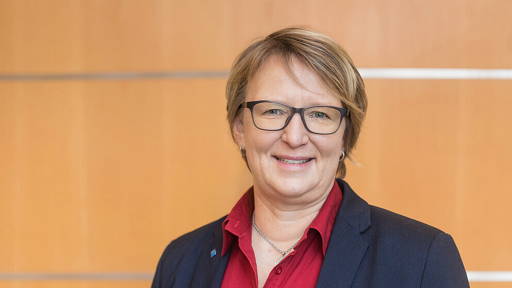Quantum computers can perform computational operations millions, trillions of times faster than those currently in use. This is because they are based on entirely different computing rules from those currently in use – in a classical computer, a processor uses bits, that is, combinations of 0 and 1 states. Bits, however, have a limitation: they can only hold one state at a time.
Quantum computers use not bits but so-called qubits, or quantum bits, which can exist simultaneously in multiple states (superposition), representing both ones and zeros simultaneously. As a result, while a classical computer runs a single calculation, quantum computers can perform multiple parallel tasks. So, the latest quantum computer from Google performs operations in seconds that the world’s most powerful classical computer would take 47 years to accomplish.
However, quantum technology also has its limitations. Qubits are extremely sensitive to the influence of the environment – the slightest disturbance can lead to a calculation error. Therefore, they require special conditions, such as a temperature close to absolute zero (-273.15 °C).
The speed of quantum computers is an attribute that medicine needs. With exponentially faster calculations, machine learning algorithms could recognize patterns in massive data sets and run simulations in the development of new drugs using digital twins.
First quantum computer dedicated to healthcare research
The first quantum computer in a hospital was introduced at Cleveland Clinic as a part of a collaboration with IBM. The initiative aims to “accelerate biomedical research through the use of high-performance computing, artificial intelligence, and quantum computing.” Commercial purchase of a quantum computer is still beyond the capabilities of hospitals. For example, a 50-qubit D-Wave One device costs about $10 million, and the maintenance cost is estimated at $1 million per year.
“This technology holds tremendous promise in revolutionizing healthcare and expediting progress toward new cares, cures and solutions for patients. Quantum and other advanced computing technologies will help researchers tackle historic scientific bottlenecks and potentially find new treatments for patients with diseases like cancer, Alzheimer’s and diabetes,” said Tom Mihaljevic, M.D., Cleveland Clinic CEO and President and Morton L. Mandel CEO Chair.
The list of research planned at Cleveland Clinic includes the development of quantum computing protocols for screening and optimizing drugs targeting specific proteins; improving a model for predicting cardiovascular risk after non-cardiac surgery; and analyzing the results of genome sequencing and large drug databases to identify already existing drugs that could help Alzheimer’s patients.
Acceleration of medical research
Combining the unimaginable computing power of quantum computers with other technological advances, such as artificial intelligence, DNA sequencing, and research on large data sets (Big Data), gives health sciences a powerful new research tool unmatched by any other invention.
It will primarily benefit the pharmaceutical industry by reducing the duration of clinical research and identifying new chemical molecules faster as potential new drugs. By combining quantum computers with AI and body function simulation technologies on a chip (in silico), it will be possible to develop new therapies in a laboratory setting and bring them safely to market. Digital twins will be used for testing, making it possible to create different versions of drugs tailored individually to patients’ personal characteristics.
A 50-qubit quantum computer costs about $10 million. The maintenance is about $1 million yearly
Second, they will help detect and understand correlations in medical databases. The amount of data collected from various points by smart sensors placed on the body and at home is growing exponentially. According to
Statista, healthcare data accounted for as much as 2.3 of the 64.2 zettabytes (1 zettabyte = one trillion gigabytes) generated worldwide in 2022. This number is snowballing. Their processing, even to a small extent, is not possible with classical computers. Quantum computing will help look for new correlations and process data collected from millions of patients simultaneously in real-time. And this will bring new discoveries in the field of prevention.
Doctors will also benefit, as supercomputers can analyze the rapidly growing body of medical knowledge to accurately diagnose rare diseases and select treatment pathways tailored to individual disease characteristics and data collected in electronic medical records. This will close the ever-widening gap between science and practice: the English-language PubMed search engine already contains more than 35 million articles in medicine and the life sciences. Another million are added every year. Cancer studies alone amount to more than 3 million. No doctor can keep up with them; quantum computers, on the other hand, can make calculations using the global collection of medical information in seconds.
Quantum revolution? Not yet
Although almost every month, companies announce the creation of ever-improving quantum computers, and the latest machine from IBM has already reached the power of 433 qubits, it will be several more years before this breakthrough technology is used on a mass scale.
The problem is the instability of qubits, which can cause possible errors. Therefore, researchers are working intensively on error correction technologies.
Besides, there is a shortage of qualified scientists qualified to work on supercomputers. On top of that, the prices amount to tens of millions of dollars, not to mention maintenance costs, which include ensuring temperatures below 200°C.
If the development of stable quantum computers succeeds, medicine is in for an unprecedented revolution.







